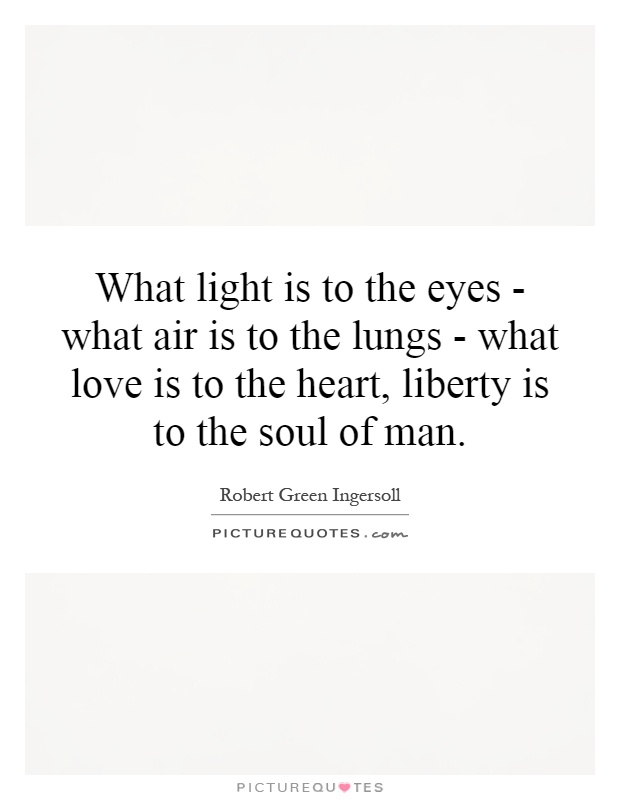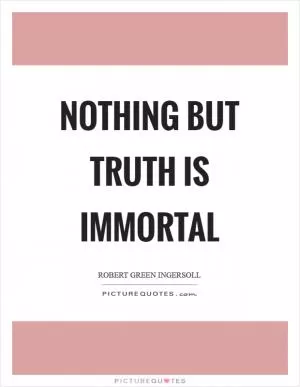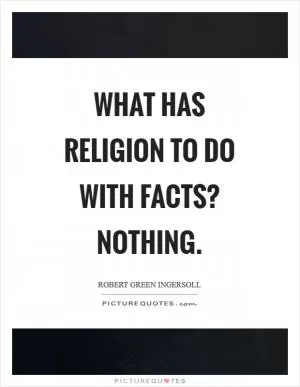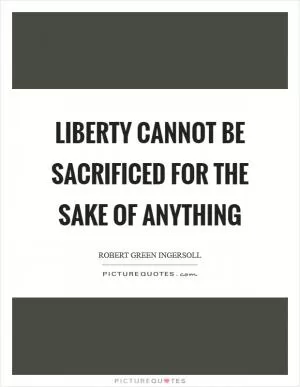What light is to the eyes - what air is to the lungs - what love is to the heart, liberty is to the soul of man

What light is to the eyes - what air is to the lungs - what love is to the heart, liberty is to the soul of man
Robert Green Ingersoll was a prominent American lawyer, orator, and political leader in the late 19th century. He was known for his staunch advocacy of secularism, individualism, and freedom of thought. Ingersoll was a passionate defender of liberty and believed that it was essential for the well-being of the individual and society as a whole.In one of his famous quotes, Ingersoll said, “What light is to the eyes - what air is to the lungs - what love is to the heart, liberty is to the soul of man.” This powerful statement encapsulates his belief in the fundamental importance of liberty to the human spirit. Just as light allows us to see, air allows us to breathe, and love fills our hearts with joy, liberty is what nourishes our souls and allows us to truly flourish as individuals.
For Ingersoll, liberty was not just a political or legal concept, but a deeply spiritual and existential one. He believed that true freedom was essential for human beings to reach their full potential and live meaningful lives. Without liberty, he argued, individuals would be stifled, oppressed, and unable to pursue their own happiness and fulfillment.
Ingersoll saw liberty as the foundation of all other rights and freedoms. Without the freedom to think, speak, and act according to one's own conscience, all other rights would be meaningless. He believed that individuals should be free to explore their own beliefs, express their own opinions, and live their lives according to their own values and desires.
Ingersoll's advocacy for liberty was rooted in his deep respect for the dignity and autonomy of the individual. He believed that each person had the right to make their own choices, pursue their own goals, and live their lives in accordance with their own principles. For Ingersoll, liberty was not just a political ideal, but a moral imperative that was essential for the well-being and flourishing of humanity.












 Friendship Quotes
Friendship Quotes Love Quotes
Love Quotes Life Quotes
Life Quotes Funny Quotes
Funny Quotes Motivational Quotes
Motivational Quotes Inspirational Quotes
Inspirational Quotes